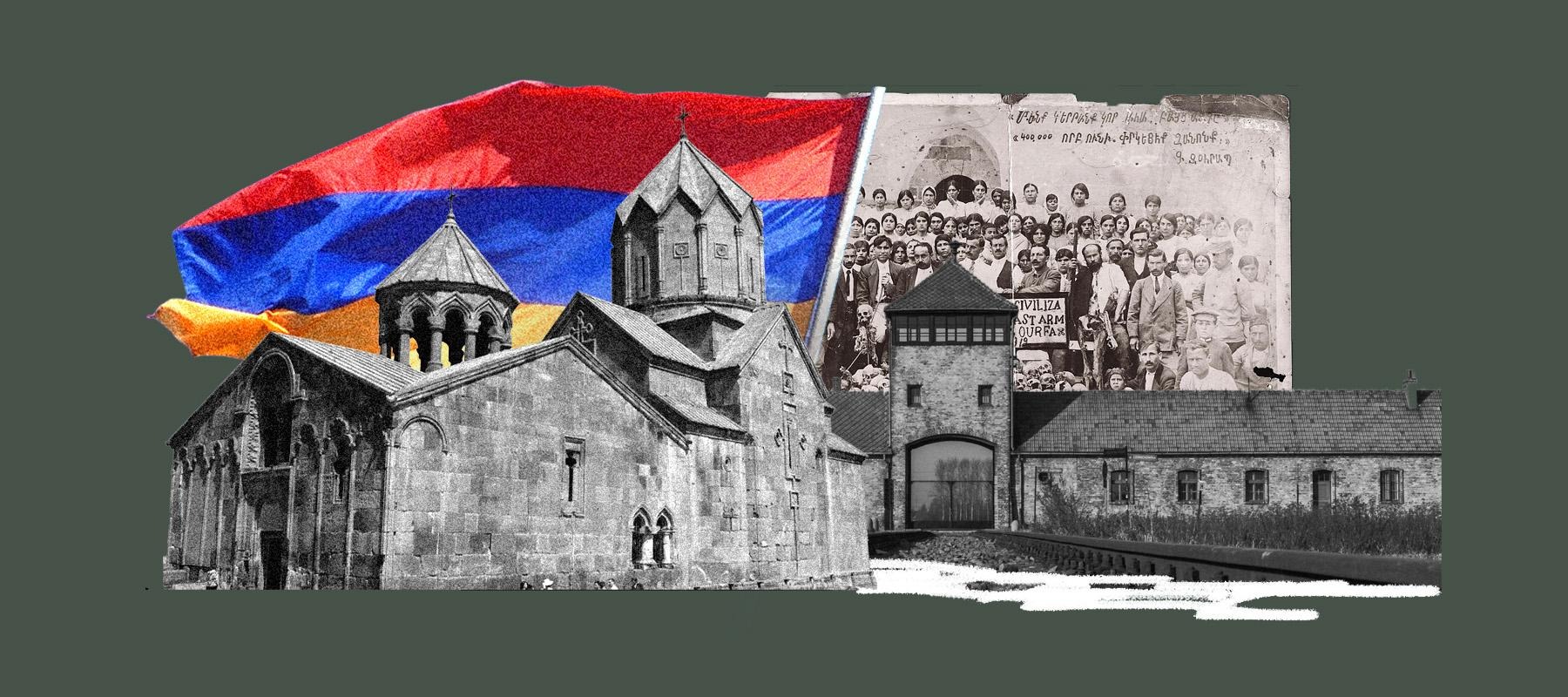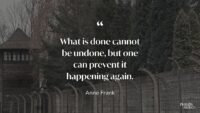The natural friendship of the Jews and Armenians

April 24, 2025
Subscribe to Luke Moon’s Weekly Updates
Jordan Bans the Muslim Brotherhood
For decades, many of the extremist ideologies plaguing the Middle East traced back to the Muslim Brotherhood, a Sunni Islamist movement founded in Egypt in 1928. The Brotherhood’s tenants of reviving religious fanaticism to restore the greatness of Muslim society and rid it of Western influence have spread across the region and morphed into violent groups, including Al Qaeda and Hamas. Many regional governments, such as Saudi Arabia, Jordan, and several Gulf states, have opposed the Brotherhood. On Wednesday in Jordan, the Interior Ministry announced it would enforce a widespread ban on the Brotherhood’s activities following the arrests of 16 individuals charged with a plot involving weapons, explosives, and plans to build drones and train combatants. This is significant not only because of the extent of the plot but also because the Brotherhood’s political arm won over 30 Parliamentary seats last year. Islamist extremism is widespread and antithetical to peace and progress, and we applaud Arabs, Israelis, and others in the Middle East who are fighting it.
Syria Reportedly Interested In Joining Abraham Accords
Under the Assad Regime, some called Syria an ally of the Islamic Republic of Iran. It was the link connecting Iran’s lines to Hezbollah in Lebanon and facilitated many of the dark forces shadowing the region. Syria also fought Israel in the Arab-Israeli wars and has maintained fierce hostilities, a reason why Israel’s control of the Golan Heights was critical to its security. Now, with Assad ousted and the new president Al-Sharaa claiming pluralism and unity, a significant indicator of the president’s intentions rests on relations with Israel. So, the news that Al-Sharaa told U.S. Congressman Cory Mills during a visit to Damascus of his willingness to join the Abraham Accords is an incredible pivot from the country’s historical positions. Al-Sharaa’s conditions, such as Syrian control of the Golan Heights, would likely be a nonstarter for Israel, but we pray this is the start of genuine negotiations that can bring peace to decades-long strife.
 The Christian Genocides the West Won’t Talk About
The Christian Genocides the West Won’t Talk About
What threats face Armenians today, and what other Christian genocides has the West failed to address? Jackie Abramian joins Dominique to discuss.
 Holocaust Remembrance Day
Holocaust Remembrance Day
We solemnly honor the memory of the millions of lives lost in the Holocaust. May we never forget the evils of the Holocaust or these victims. Read here.
 A Catholic, a Jew, and an Evangelical Discuss Pope Francis’s Legacy
A Catholic, a Jew, and an Evangelical Discuss Pope Francis’s Legacy
Watch my conversation with Philos’ Simone Rizkallah and Phillip Dolitsky about Pope Francis’s passing and his complex legacy—particularly regarding Israel and the Jewish people. Watch here.
Holocaust Remembrance and Armenian Genocide Remembrance Days Coincide
For the first time in many years, the memorial days of the Holocaust and the Armenian Genocide coincide this week. This is a unique time to reflect on the shared experiences of the Israelis and Armenians, who, though at political odds with Israel and Azerbaijan’s relationship, are natural friends. These peoples share historical trauma, deep cultural heritages, and continued threats from hostile neighbors. The Armenian Genocide, also called the Christian Genocide, was the first of the 20th century, of which Adolf Hitler said: “Who after all speaks today of the annihilation of the Armenians?”
Tragically, what happened to the Armenians is controversial today, with even the White House statement failing to label it a “genocide.” Similarly, Israel’s war of survival against Hamas is mislabeled as genocide by the world. We honor the memories of the Jews and Armenians and millions of others who were victims of sin and evil. We stand with Israel, the birthplace of our Lord and the home of our Judeo-Christian roots, and we stand with Armenia, the first Christian nation, and we pray for peace in these holy and historic places.

 The Christian Genocides the West Won’t Talk About
The Christian Genocides the West Won’t Talk About Holocaust Remembrance Day
Holocaust Remembrance Day A Catholic, a Jew, and an Evangelical Discuss Pope Francis’s Legacy
A Catholic, a Jew, and an Evangelical Discuss Pope Francis’s Legacy